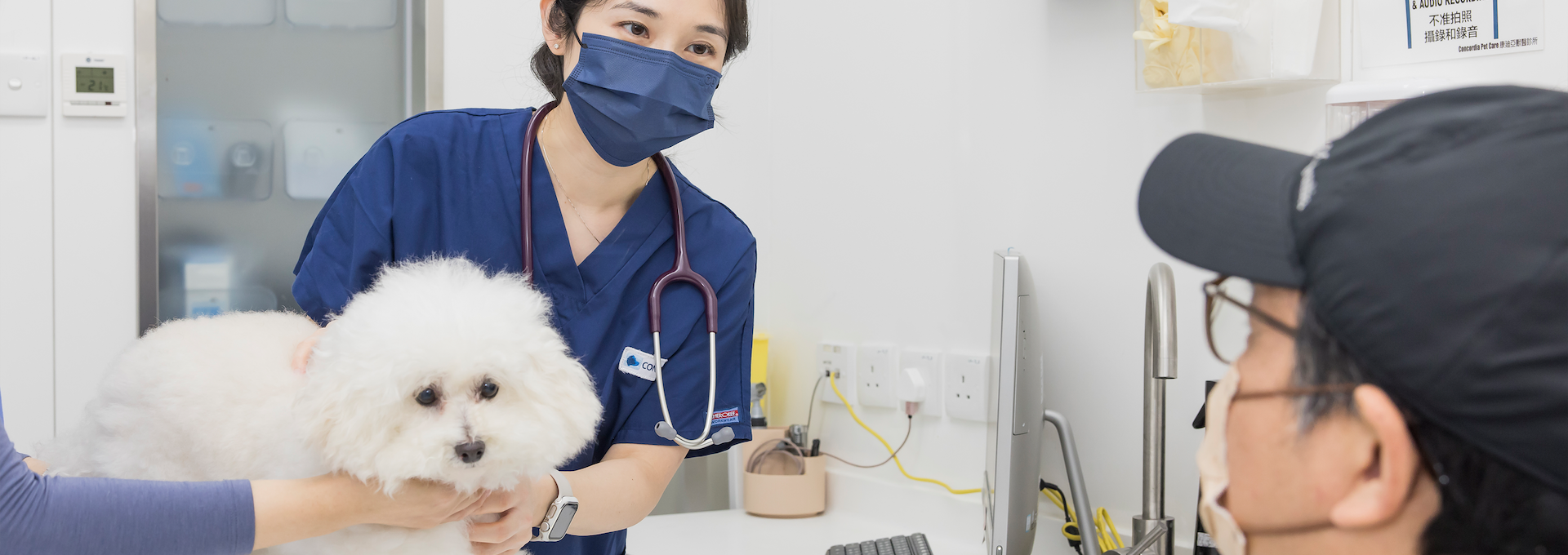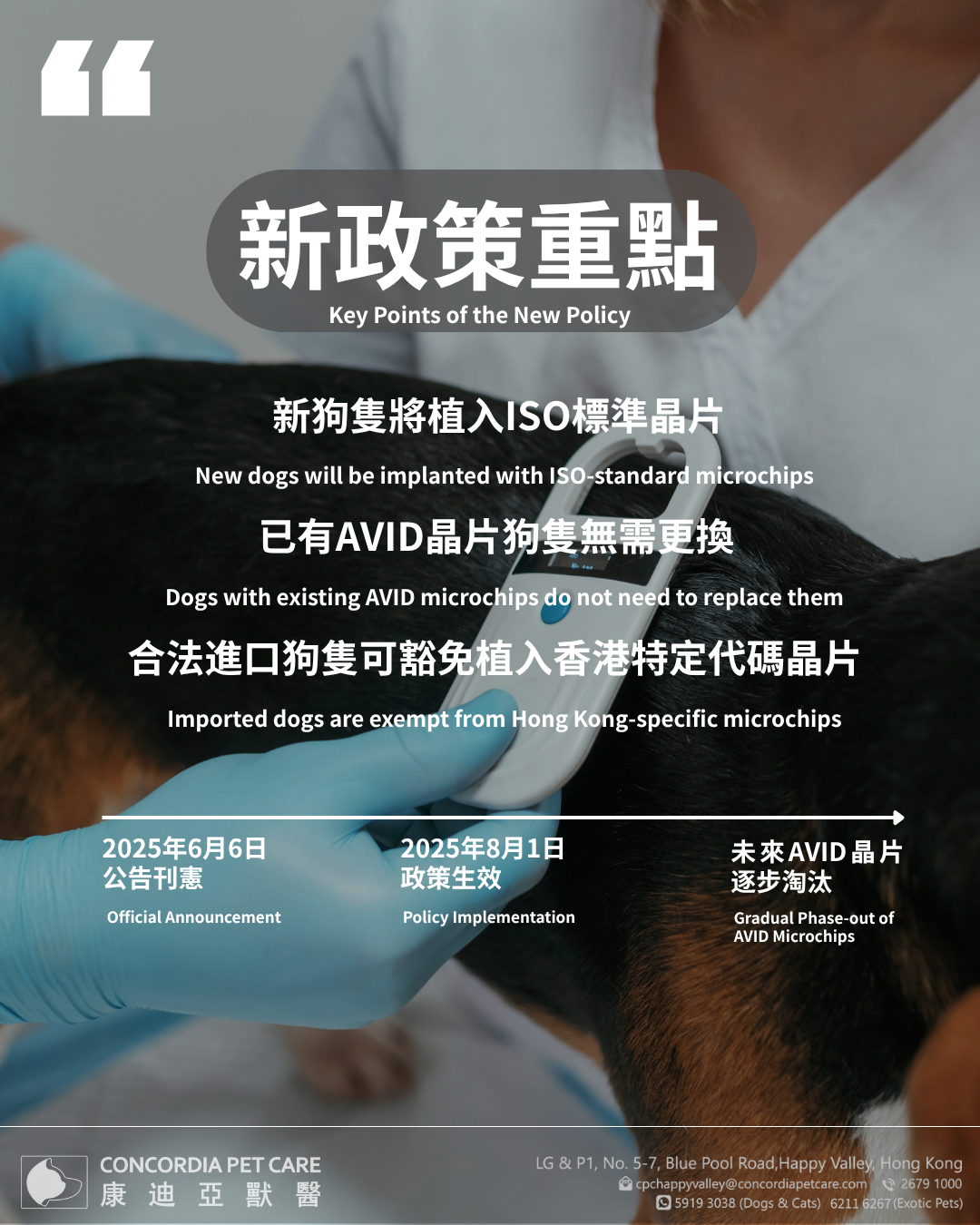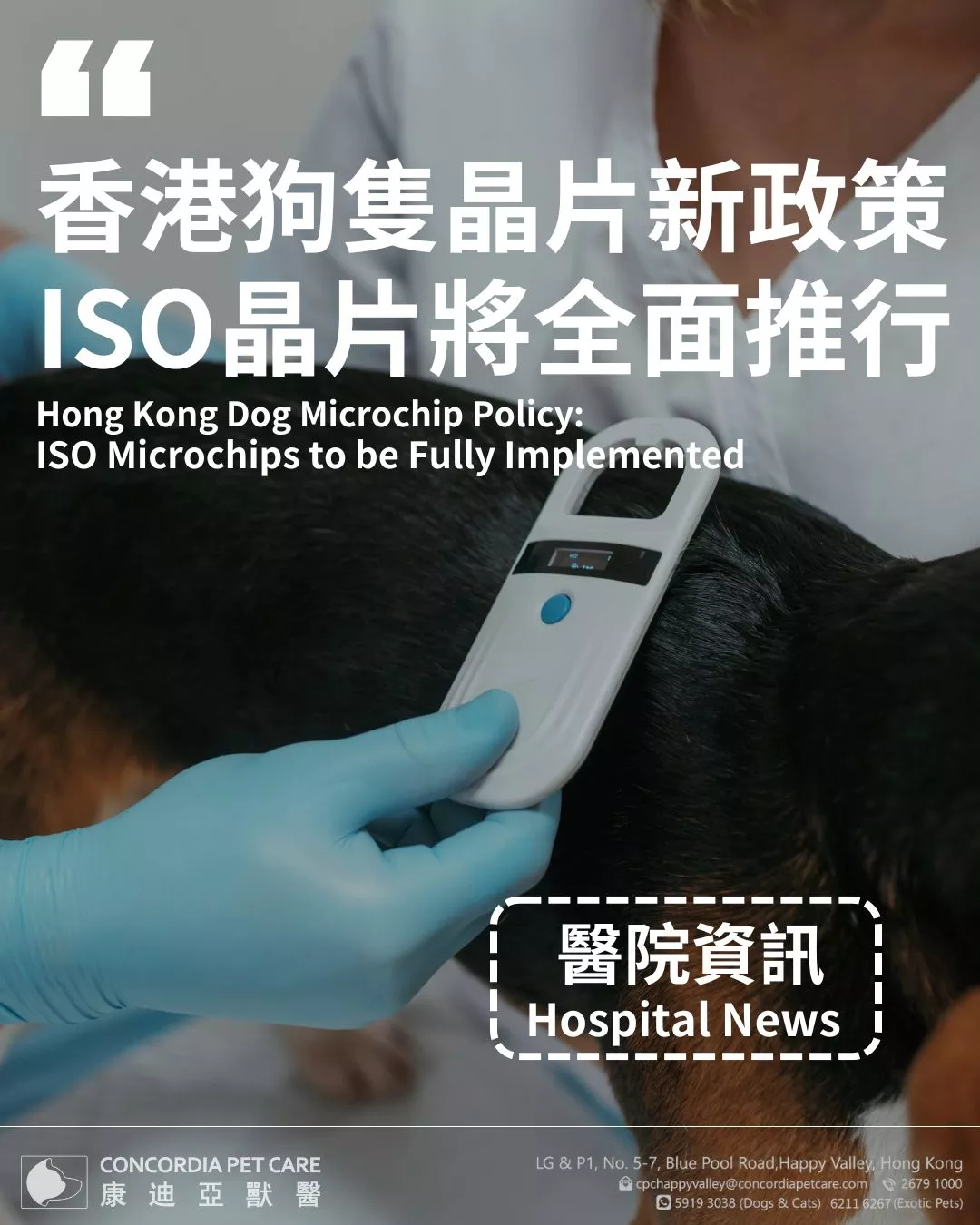
New Microchip Policy for Dogs in Hong Kong: Full Implementation of ISO Microchips and What You Need to Know
 Concordia Pet Care
Concordia Pet Care
 2025-08-05
2025-08-05



Latest Government Announcement on Microchip Policy
According to two official notices published in the Gazette by the Hong Kong SAR Government on 6 June 2025, the government will introduce microchips that comply with the standards of the International Organization for Standardization (ISO 11784 and 11785), embedded with a Hong Kong-specific code. These microchips will be used for canine identification and serve as official proof of rabies vaccination. At the same time, the announcement exempts legally imported dogs from the mandatory implantation of a Hong Kong-coded microchip, facilitating cross-border pet management and promoting animal welfare.
For full announcements, please visit: GovHK News
Key Highlights: Transition from AVID to ISO Microchips
Starting from 1 August 2025, the Agriculture, Fisheries and Conservation Department (AFCD) will gradually shift to the use of ISO-standard microchips, replacing the previously used AVID chips. Key points of the new policy include:
l New dogs to receive ISO microchips: All newly registered dogs or those without existing microchips in Hong Kong will be implanted with ISO-compliant microchips instead of AVID chips.
l Hong Kong-specific code: ISO microchips issued in Hong Kong will begin with the prefix “344,” indicating origin from Hong Kong to ensure traceability.
l Exemption for imported dogs: Dogs that already have an ISO-compliant chip and are imported legally (with valid documents) will not be required to have a separate Hong Kong-coded microchip. The existing ISO chip can be used directly for licensing purposes.
l Existing AVID chips remain valid: Dogs with previously implanted AVID chips do not need to undergo re-implantation. Their chips remain valid for ongoing three-year license renewals.
l Phasing out AVID chips: AFCD will gradually cease the use of AVID chips for new licenses and switch entirely to ISO microchips.
Legal Requirement: Dog Licensing and Microchipping
Under the Rabies Regulation (Cap. 421A) of Hong Kong Law, all dogs over 5 months old must be licensed and implanted with a microchip for identification purposes. The chip serves as proof of rabies vaccination and a valid license, and can also help reunite lost dogs with their owners. Dog owners who violate these regulations may face fines or legal consequences.
For details on dog license applications, please visit the AFCD FAQ page.
ISO vs AVID Microchips: What’s the Difference?
Currently, two main types of pet microchips are commonly used: ISO-standard and AVID chips. While both are internationally recognized, they differ in technical standards and geographical usage:
l AVID chips are mainly used in the US, Canada, Mexico, and the UK.
l ISO chips are widely adopted in many countries and regions. They operate at 134.2 kHz, follow ISO 11784/11785, and feature a 15-digit ID number. Chips issued in Hong Kong begin with the prefix "344," representing the territory code.
AFCD, after completing a feasibility study, recommends the adoption of ISO chips alongside AVID to enhance compatibility and international mobility. AVID chips, operating at 125 or 128 kHz, may not be readable by all scanners abroad, which can create inconvenience during cross-border travel. While AVID chips will remain valid for now, they will be gradually phased out in favor of ISO chips.
The Role and Importance of Microchips
Microchips are a secure and permanent form of dog identification. Their key functions include:
l Identification and recovery: Each chip carries a unique ID. If a dog goes missing, scanning the chip allows access to owner information stored in the AFCD database, aiding recovery.
l Legal compliance: Microchipping is mandatory for licensing and rabies vaccination proof, ensuring legal compliance.
l Vaccination verification: The microchip links to official rabies vaccination records.
l International travel: ISO chips are globally recognized and simplify cross-border travel procedures.
Note: Microchips do not contain GPS or location-tracking features. All owner information is stored securely in AFCD's internal database to ensure privacy.
Is Microchip Implantation Safe?
Understandably, many pet owners may worry about the safety of microchip implantation. Here’s what you should know:
l Quick and simple: The chip is inserted under the skin between the dog’s shoulder blades using a syringe, similar to a vaccination. The procedure takes only a few seconds and most dogs show minimal reaction.
l Biocompatible materials: Chips are made from materials that are safe for the body and do not cause allergic or rejection responses.
l Minimal side effects: Minor swelling or infection is rare and typically heals within a few days. Your vet will provide appropriate aftercare instructions.
l No long-term health risks: According to international veterinary studies and AFCD guidelines, microchips pose no long-term health risks to dogs.
Getting your dog microchipped is like vaccinating them—an essential step to prevent loss and protect their well-being.
Our Services and Support
As a dedicated veterinary clinic in Hong Kong, we provide professional services including microchip implantation, rabies vaccinations, and health checks for your beloved dog. Our veterinary team ensures a safe and worry-free implantation experience and will assist you with chip registration and license application.
If you have any questions regarding the new policy or microchipping procedures, feel free to contact us or visit our clinic for consultation. We will also continue to update relevant information to help you and your pet smoothly adapt to the new requirements.
Let’s work together to comply with Hong Kong’s regulations and build a safer community for our pets and society.
To schedule a rabies vaccination or microchip implantation, please contact us at 2679 1000 or send a message via WhatsApp to 5919 3038.
References:



